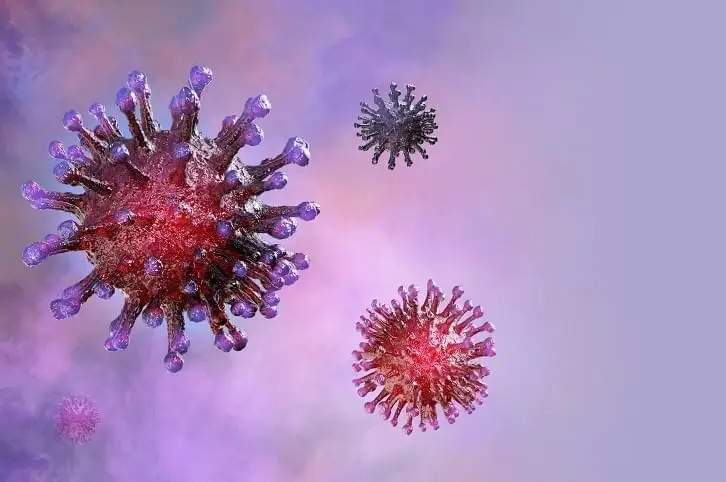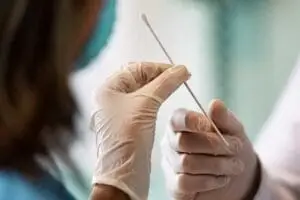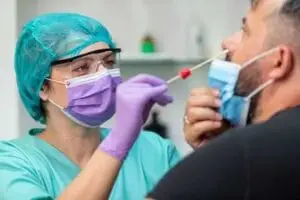esting for COVID-19 has tremendous value when it comes to trying to contain the spread of the COVID virus. According to Dr. Joseph Bustamante, Chief Medical Officer at Memorial Healthcare, “The variety of testing platforms for SARS-CoV-2 (the virus that causes COVID-19) available today can be rather confusing. There are some clear indications as to which test you should get and some not so clear reasons.”
WHAT TYPES OF TEST ARE AVAILABLE?
There are essentially two broad categories of testing:
- Antigen test (frequently referred to as a rapid test). This test detects protein fragments specific to the Coronavirus. It can be done in a clinic, doctor’s office, or hospital. Turnaround time for results is usually very quick and in some cases, results can be reported within 15 minutes.
- PCR test. PCR testing is considered the “gold standard” in SARS-CoV-2 detection. This test actually detects RNA (or genetic material) that is specific to the virus and can detect the virus within days of infection, even those who have no symptoms. The test can be done in a clinic, hospital, or even in your car. Turnaround time is longer, generally in the 2-3 day range but results can be in as little as 24 hours. When demand is high, results can take a week or longer.
WHO SHOULD GET A RAPID TEST?
Rapid tests are considered most accurate in a patient who is having symptoms of COVID-19. While the rapid test can get you results very quickly, the results may not always be accurate.
WHAT DOES A FALSE NEGATIVE OR FALSE POSITIVE MEAN?
In those who don’t have symptoms, the false negative rate — meaning my test is negative but I actually have the disease — can be as high as 50%. This can have tremendous consequences as we try to contain the spread of COVID-19.
The false positive rate — meaning I test positive but I do not really have the disease — is quite low. So, if you test positive from a rapid test it is more likely you do have the disease.
WHAT IF I HAVE A NEGATIVE RAPID TEST BUT STILL HAVE SYMPTOMS?
Current recommendation is to have a confirmation test performed (the PCR test) if you still have symptoms and have had a negative rapid test. This is especially true if you’ve had a high-risk exposure. A high risk exposure is considered more than 15 minutes of contact with a COVID-positive individual in a 24-hour period and you have been within 6 feet of this individual.
HOW CAN I HELP PREVENT THE SPREAD OF COVID-19?
- Wear a face mask.
- Social distance – maintain 6 feet distance.
- Wash your hands often with soap and water for at least 20 seconds.
- Use an alcohol-based hand sanitizer with at least 60% alcohol.
- Avoid touching your eyes, nose, and mouth with unwashed hands.
- Avoid close contact with people who are sick.
- Stay home when you are sick.
- Cover your cough or sneeze with a tissue.
- Clean and disinfect frequently touched objects and surfaces.
As always, if you are not sure what COVID-19 test is right for you, please talk with your healthcare provider.
Memorial Healthcare offers COVID-19 PCR testing by appointment only. Individuals should contact (989) 729-6422 to register and schedule an appointment at our drive-thru testing site or at an outpatient laboratory location. Testing is available for screening; for those experiencing mild to moderate symptoms (fever, cough, muscle aches, headache, new loss of taste or smell, shortness of breath or difficulty breathing, chills, fatigue, sore throat, congestion or runny nose, nausea or vomiting, diarrhea); or for those who have a known or suspected exposure. A provider order is highly recommended, however, Memorial Healthcare is prepared to assist with an order if needed.
Memorial Healthcare averages a little over 24 hours for testing turnaround. To view our current testing turnaround times via the State of Michigan.


